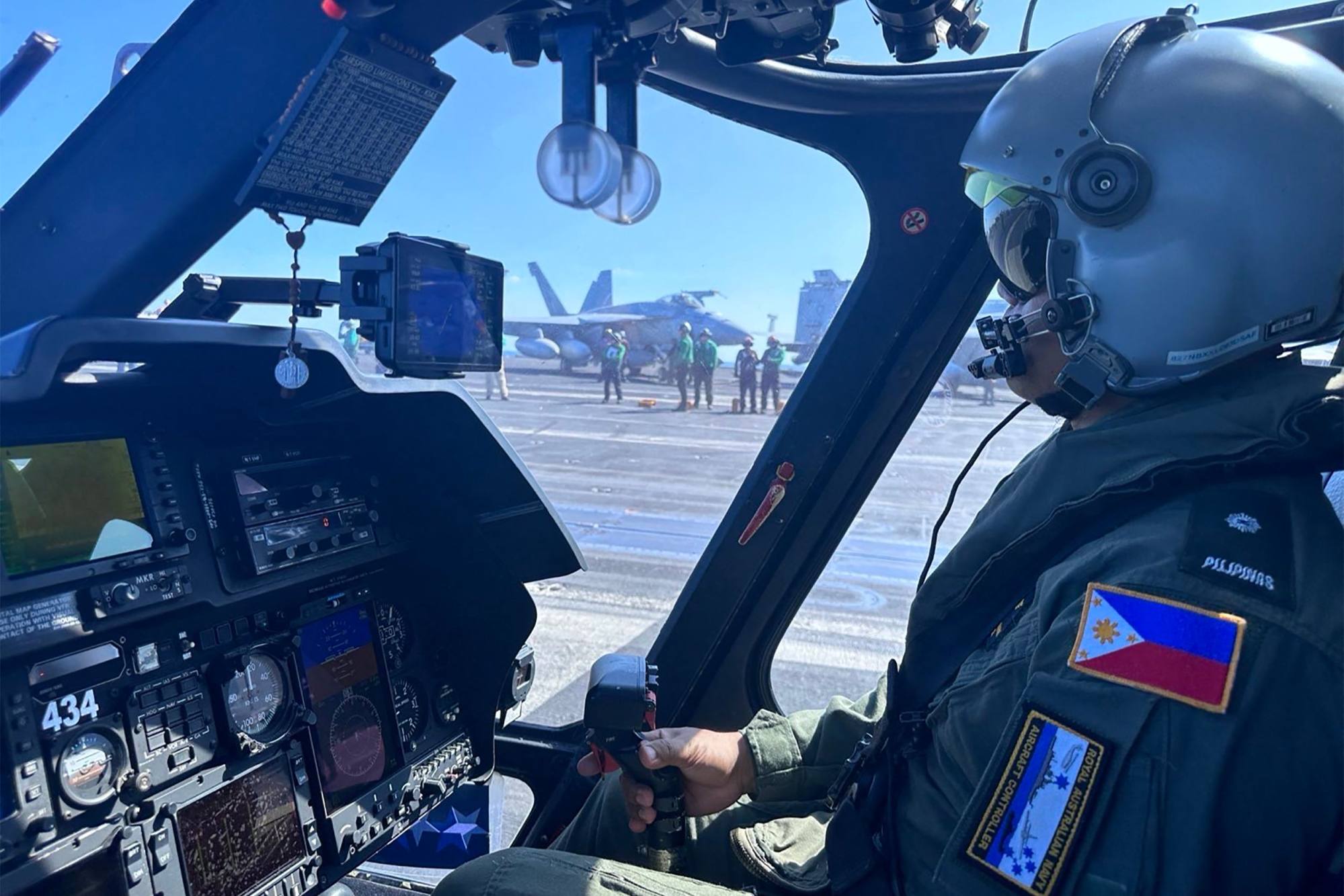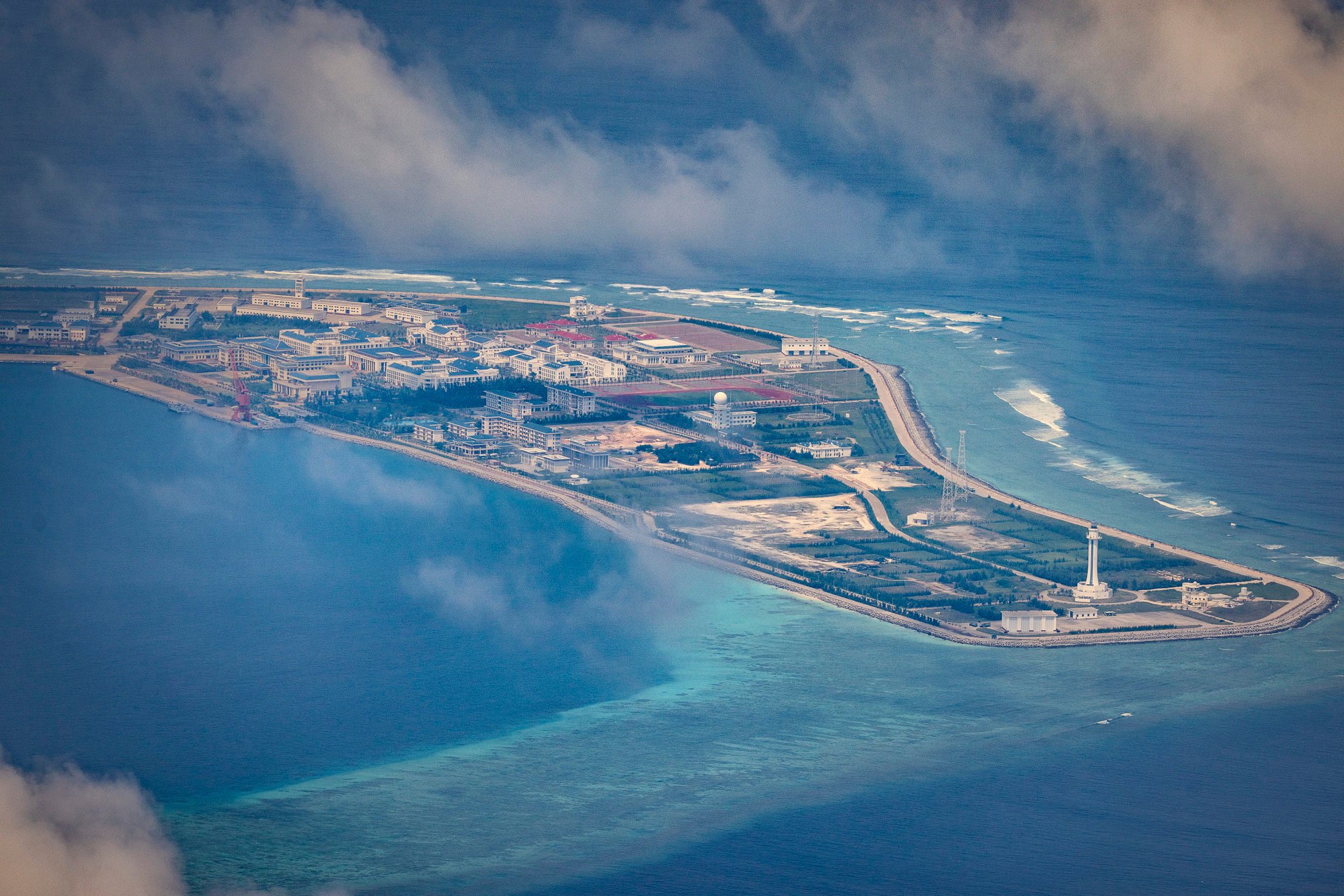‘Likely to agitate China’: European powers step up their Indo-Pacific presence – to a mixed Southeast Asian reaction
[ad_1]
“It was unilateral, done without consultations, and directly threatened European supply lines to the industrial economies of Northeast Asia”, he said, adding that “without exception”, European navies had responded by strongly supporting national Indo-Pacific strategies aimed at countering China’s growing influence.
As the US and China woo with military drills, who will Southeast Asia choose?
As the US and China woo with military drills, who will Southeast Asia choose?
But the increased presence of European powers will not make the region safer, Hemmings said, as these countries were currently only able to offer “low-level commitments to the region – a naval group, an alignment, or a growing military footprint”.
“There are serious economic, resource, and distance limitations on what they can commit to the region,” he said.
“Their willingness to defend Taiwan, for example, is unclear should the US commit to defending [the island].”
‘Not necessarily productive’
The visiting forces agreement will reportedly open new avenues for more sophisticated military-to-military cooperation and improve both countries’ interoperability and maritime domain awareness.
Earlier in the year, Italian offshore patrol vessel the Francesco Morosini undertook a five-month deployment to the region, including a port call to Yokosuka, home to the US Navy’s 7th Fleet and the Japanese Maritime Self-Defence Force.
The Italian Navy is also expected to send its flagship aircraft carrier Cavour, along with its battle group, to the region early this year.
Indonesia traditionally has always been cautious with extra-regional military presence in the region, Malaysia is also critical
Describing the growing presence of European powers as “interesting yet not really surprising”, Aristyo Rizka Darmawan, an international law lecturer at the University of Indonesia, said this was due to a growing geopolitical shift to the region and the importance of navigation and security.
“But on top of that is the increasing role of China in the region,” he said, adding that the European countries’ growing presence will “not necessarily be productive”.
“Indonesia traditionally has always been cautious with extra-regional military presence in the region, Malaysia is also critical to this presence,” Aristyo said.
“Maybe the Philippines is the country which mostly welcomes those extra-regional naval presence in the region, considering its stand-off with Beijing.”

Instead of sending warships, Aristyo suggested that European powers’ help to increase the capabilities of navies and coastguards in the region, such as through the Garuda Shield exercises, would be a better approach to avoid the risk of increasing tension with China.
The annual US-Indonesia Garuda Shield joint drills have expanded since their inception to include troops from Australia, Japan, Singapore, France and Britain.

An agitating deterrent?
Joshua Bernard Espena, a defence analyst and resident fellow at the International Development and Security Cooperation think tank in Manila, said the presence of European powers could help deter China’s “aggressive moves” in the South China Sea.
But their presence is also “likely to agitate China” as Beijing sees these powers as “external players” or “extra-regional actors”, he said, adding that regional countries can “shape” the presence of such powers.
Naval cooperation with European countries need not be limited to non-traditional threats such as piracy, smuggling and natural disasters, but can also include ways of dealing with “a war on the high seas against a regional power such as China”, Espena said.
If only one or two vessels are sent, this indicates only “goodwill”, he said, “but the real thing is when a country sends a naval task force composed of warships with multiple spectrum fighting roles that are logistically capable of operating on the high seas for a long duration.”

With their large navies, economies, trade links and diplomatic ties with regional countries, these European powers “seek to uphold the international law where it is being challenged”, said Abbondanza, who is also affiliated with the University of Sydney and the Italian Institute of International Affairs.
Recent deployments by the Italian navy and air force are only one component of a larger equation, he said, adding that Rome was currently undertaking a parliamentary discussion on a potential strategy for the Indo-Pacific aimed at pursuing stronger ties with the region.
“The unfolding Italian approach could lead to a new chapter in terms of cooperation with Indo-Pacific countries and institutions,” Abbondanza said.
China accuses US of threatening peace after warship passes disputed reef
China accuses US of threatening peace after warship passes disputed reef
Jacob Ross, a research fellow at the German Council on Foreign Relations, said Italy and Germany share a common interest in the region’s security as their economies depend on “open and safe maritime trading routes” and Asian factories and markets.
Whether the presence of European powers ensures a safer region will depend on whether regional countries “trust middle powers like France to be able to offer credible alternatives to the increasingly tense relations between the US and China”, Ross said.
“French and EU positions have at times been analysed as less confrontational than US positions,” he said, adding that a difference should be made between France and other European powers as Paris “clearly considers itself an Asia-Pacific or Indo-Pacific power”.

While Italy and Germany have sent ships to the region, Ross noted that only France has sent vessels through the Taiwan Strait, possesses nuclear submarines and is willing to send them on regional missions.
In April, French surveillance frigate Prairial transited through the strait, according to the Taiwanese government.
Fabio Figiaconi, a PhD candidate in the Brussels School of Governance, said that the growing presence of European powers will not “revolutionise the security environment of the Indo-Pacific, nor change its power balance in a substantial way”.
He noted that except for France, no European power possesses a permanent military presence in the Indo-Pacific, as their deployments take place on an occasional and temporary basis.
French territories in the region include the islands of Mayotte and Réunion near Madagascar, and New Caledonia and French Polynesia in the Pacific, among others.
South China Sea: Beijing, Asean claimant states risk further conflicts in 2024
South China Sea: Beijing, Asean claimant states risk further conflicts in 2024
Figiaconi said the naval deployments and security-related initiatives put forward by the European Union and its member states are important “in terms of strategic signalling”, especially in conveying the message that European powers wish to see the region “remain open and free from coercion”.
“The continuation of such naval missions and joint exercises … sends the message to like-minded regional partners that Europeans are not fully absorbed in terms of attention and resources by the war in Ukraine,” he said.
“They do also care about other strategic theatres that are indeed crucial for their economic security.”
[ad_2]
Source link




